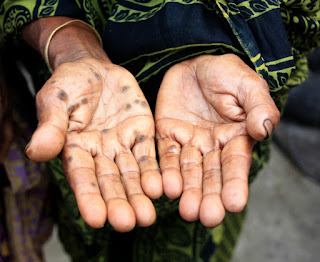Biopriming with Beneficial Endophytic and Rhizospheric Soil Actinobacteria on Comparative Growth Promotion and Root Colonization Potentials in Mustard Crop: A Field Appraisal
Mustard is an essential oilseed crop belonging to family Brassicaceae (Cruciferae). In the present study, out of a total of 50 actinobacterial isolates (30 from rhizospheric soil and 20 from endophytic tissues) obtained from mustard plant, two promising isolates (rhizospheric MRS-15 and endophytic MER-33) were evaluated for the plant growth promoting potential and endophytic occurrence in in-vitro assay. The MRS-15 isolate was observed to form biofilm-like structure on root epidermis while MER-33 reached inside the root outer cortex on seed inoculation in mustard seedlings. In the field study, Azotobacter was applied as a reference culture along with the two best isolates (MRS-15 and MER-33). The results revealed significant enhancement of various growth parameters (plant height, fresh and dry shoot and root weight, chlorophyll content) and yield attributes by the two actinobacterial cultures. Whereas seed weight/plant and seed yield were enhanced by all three inoculants over the uninoculated control. The seed quality traits, including the total phenol content and DPPH scavenging activity, were improved by MRS-15 inoculation followed by inoculation with Azotobacter. An increase in viable cell counts of total aerobic bacteria, actinobacteria, and free-living N-fixers was recorded on microbial inoculation as enumerated during different stages of growth. This study accentuates the use of plant growth-promoting actinobacterial isolates for the development of bioinoculant formulation for enhanced growth and seed yield in the mustard crop.
SOURCE: https://www.envsciarch.com/volume4issue2/biopriming-with-beneficial-endophytic-and-rhizospheric-soil-actinobacteria-on-comparative-growth-promotion-and-root-colonization-potentials-in-mustard-crop%3A-a-field-appraisal




Comments
Post a Comment